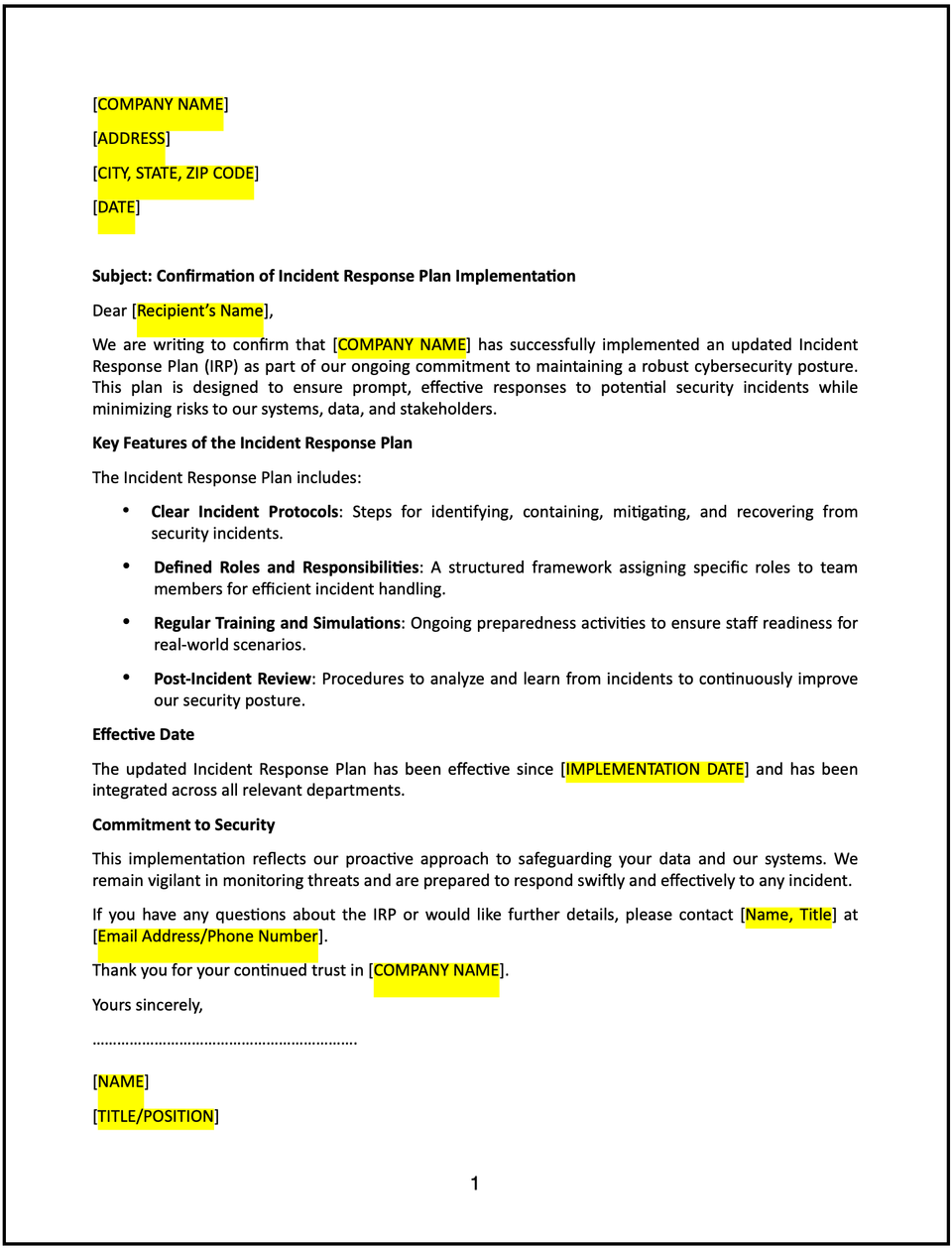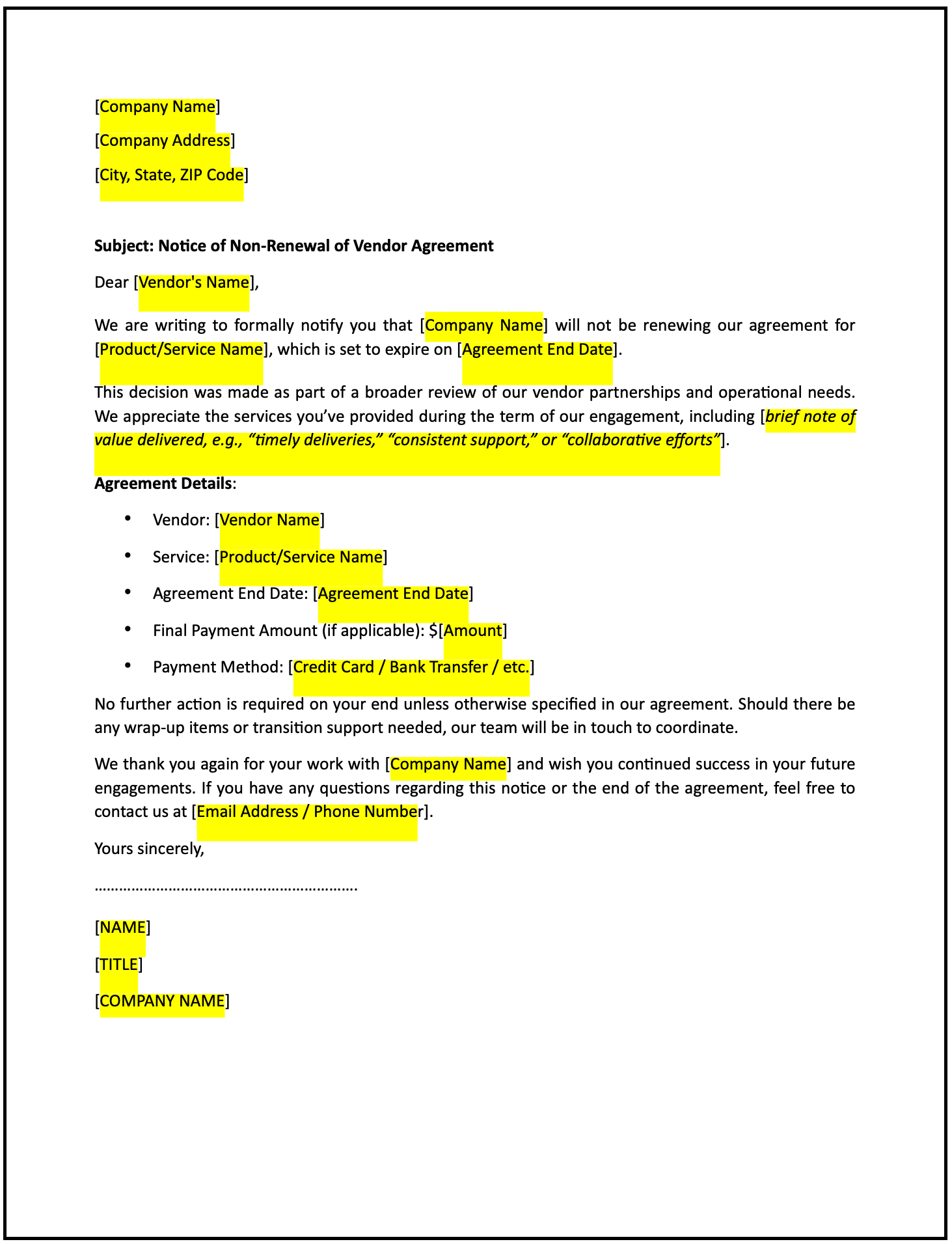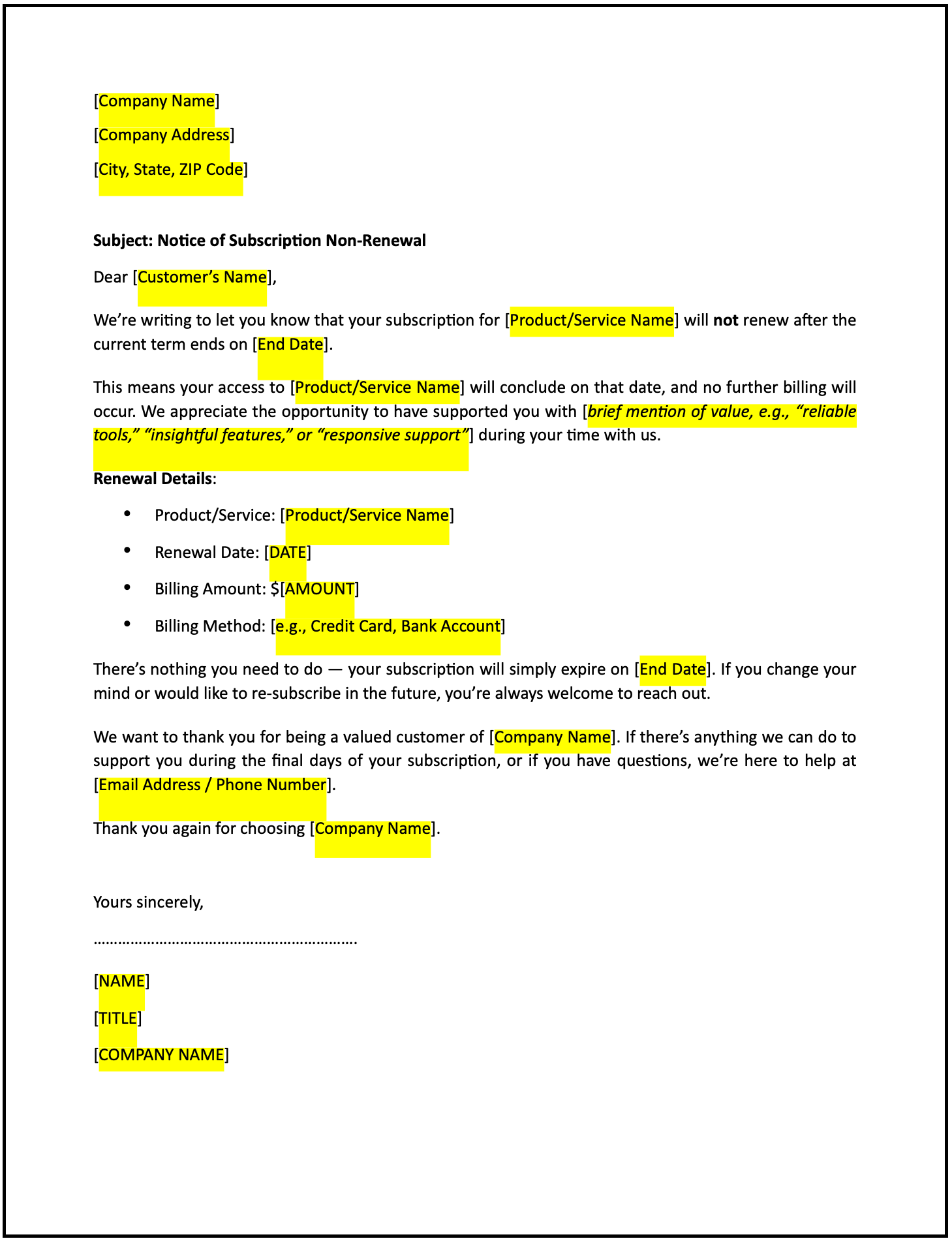Letter confirming incident response plan implementation: Free template

Letter confirming incident response plan implementation
A letter confirming the implementation of an incident response plan is a formal communication used to inform stakeholders that a structured plan has been activated to address a specific incident. This letter outlines the steps being taken, provides reassurance, and ensures transparency to maintain trust and confidence.
How to use this letter confirming incident response plan implementation
- Open with an introduction: Address the recipients respectfully and state the purpose of the letter—to confirm the implementation of an incident response plan.
- Describe the incident: Briefly outline the nature of the incident to provide context without unnecessary detail.
- Confirm the plan’s implementation: State that the incident response plan has been activated and explain its primary objectives, such as containment, resolution, and prevention of recurrence.
- Highlight actions taken: Share the key steps being implemented to address the issue and mitigate its impact.
- Reassure stakeholders: Emphasize that the situation is being managed responsibly and provide an estimated timeline for resolution, if possible.
- Provide instructions: Include guidance for stakeholders on any immediate actions they may need to take or how they can stay informed.
- Maintain a professional tone: Ensure the letter is clear, respectful, and solution-focused.
- Provide contact information: Include details for recipients to reach out with questions, concerns, or further input.
Benefits of using a letter confirming incident response plan implementation
This letter provides a structured and professional way to communicate the activation of an incident response plan while fostering trust and transparency. Here’s how it helps:
- Promotes accountability: Clearly outlining actions demonstrates responsible management of the situation.
- Reflects professionalism: A well-crafted letter shows attentiveness and commitment to resolving the issue.
- Builds trust: Open communication reassures stakeholders that their concerns are being addressed effectively.
- Encourages engagement: Providing actionable steps and contact details fosters collaboration.
- Strengthens relationships: Proactive updates reinforce confidence in the organization’s ability to manage incidents.
Tips for writing an effective letter confirming incident response plan implementation
- Be specific: Clearly describe the incident’s nature and the response plan’s objectives.
- Use professional language: Maintain a respectful and reassuring tone to build trust and confidence.
- Highlight key actions: Share steps being taken to address the issue and minimize its impact.
- Provide actionable advice: Include instructions for stakeholders, such as how to stay informed or report further concerns.
- Keep it concise: Focus on the key points while ensuring the tone is clear and professional.
Frequently asked questions (FAQs)
Q: What details should I include in this letter?
A: Include the incident’s nature, the activation of the response plan, actions taken, and instructions for stakeholders.
Q: Should I personalize the letter?
A: Yes, addressing recipients collectively or individually ensures clarity and demonstrates attentiveness.
Q: Who typically sends this letter?
A: Company leadership, risk management teams, or incident response coordinators typically send this letter.
Q: How formal should this letter be?
A: The tone should be professional and reassuring, focusing on transparency and resolution.
Q: When should this letter be sent?
A: Send the letter promptly after the response plan has been implemented to keep stakeholders informed.
Q: Can this letter include a timeline for resolution?
A: Yes, including an estimated timeline can help set expectations and reassure stakeholders.
Q: Is acknowledgment from recipients required?
A: While not mandatory, requesting acknowledgment ensures recipients are aware of and aligned with the response plan.
This article contains general legal information and does not contain legal advice. Cobrief is not a law firm or a substitute for an attorney or law firm. The law is complex and changes often. For legal advice, please ask a lawyer.


